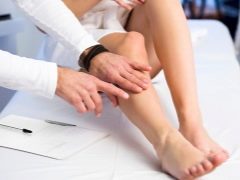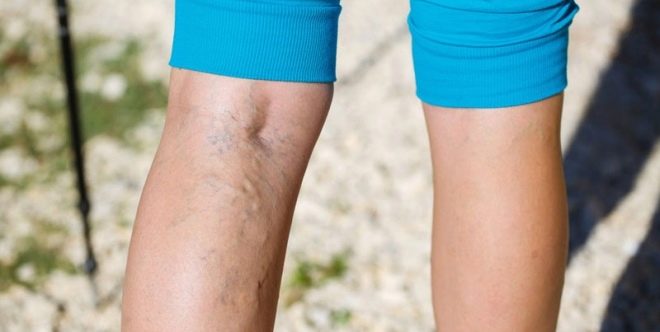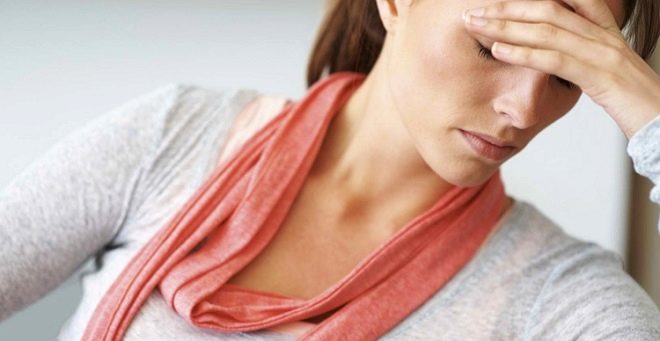Psychosomatics of varicose veins
Varicose veins - a disease, mostly "adult", which signals a violation of blood circulation. In children, pathology is very rare. But lately, pediatricians have begun to state the disease in children, while medicine cannot yet give a clear explanation for the phenomenon. In this article we will talk about psychosomatic varicose veins in both adults and children.
general information
The disease, which is popularly called varicose veins, in medicine is called varicose veins. It is associated with an increase in the lumen of some blood vessels, as a result of which not only their shape changes, but also the blood flow changes, and valve functions suffer. The elasticity of the blood vessels of the lower limbs is broken. Gradually slows down the speed of blood flow, which causes the formation of blood clots. In advanced cases, when the skin begins to suffer from a lack of blood, trophic ulcers begin to develop.
The disease is widespread among women and slightly less common in men. The first symptoms of pathology are bulging, swollen veins, leg cramps at night, evening leg swelling, heaviness and even pain in the lower limbs, the appearance of brown spots on the legs below the knees. Among the reasons, evidence-based medicine refers to impaired blood flow, obesity, a small amount of stress on the legs, or an excessive load on them (for example, during standing work). Contribute to the development of varicose veins and chronic constipation, as well as pregnancy and genetic predisposition.
Psychosomatic causes
Varicose veins. And to understand what psychosomatics requires a clear understanding of what the metaphysical function of the veins is. Psychosomatic medicine treats all blood vessels as channels with which a person can perceive the joy of life. If the blood circulates easily, freely, there are no problems with the veins, then he knows how to rejoice, if problems arise, the reason should be sought in this.
Pay attention to the statistics: among all patients with varicose veins up to 65% are women. It turns out that they quickly become immersed in problems and are experiencing more strongly, which leads to the fact that there is less and less joy. But varicose veins mainly concerns the lower limbs, and their psychosomatic meaning is in the desire to move forward. In this way, from the point of view of psychosomatics, varicose veins - stagnation, unwillingness or inability to move forward with joy, to experience pleasure from life and events.
Psychoanalysts have drawn up psychological portraits of patients with varicose veins and found out that problems with leg veins are experienced by people who are chronically unhappy with everything that happens. They do not know how to rejoice at trifles, they experience irritation and even anger at those who move through life, in their opinion, more successfully.
It is noteworthy that up to 90% of women with varicose veins express discontent with their husbands, who cannot provide them with financial stability.
Among men with varicose veins, very conscientious representatives of the stronger sex prevail, who constantly torture themselves morally for not providing proper economic well-being to their relatives, who are concerned about this. Often, according to psychoanalysts, the starting mechanism in the development of pathology is the feeling of regret that it did not happen in life.Women, as a rule, experience a heavy burden of responsibility, they literally feel “crushed” by life and problems (on this basis, along with varicose veins, problems with the thyroid gland and gynecological diseases often develop).
Everyone, even children with varicose veins, who have recently become increasingly common in the practice of doctors, is prone to dissatisfaction with something in their own lives. The child may be dissatisfied with the educational measures of the parents, the school, relations with his peers. Adults often begin to suffer such total discontent if they are forced to go to work, which they do not like, if relations in the family are burdensome and difficult.
This can be compared with a large, heavy bag that a person carries on his shoulders. The stronger the person feels the burden of responsibility, not delivering a drop of joy, the greater the likelihood that he will develop varicose veins.
Some researchers believe that a thoroughly repressed anger can act as a predisposing cause. A person is dissatisfied, but he cannot admit it, throw out everything, his anger accumulates and one day he begins to “stick out” through the skin, through the veins.
Opinion researchers
Writer and teacher Louise Hay, who compiled tables of diseases for psychosomatic reasons, argued that varicose veins are the result of a long time that a person spent in a situation he hated, in a state of overload or overwhelmment of duties. Canadian psychologist Liz Burbo, observing thousands of her patients, came to the conclusion that everyone who suffers from varicose veins can perceive their life as a heavy burden. Even in speech, they regularly use such verbal turns as “I carry my cross”, “my burden is heavy”, “my sins are grave,” and so on.
In principle, these people are very responsible and obligatory, they always put the notion “must” ahead of the notion “I want”, and that is what destroys them, because they themselves forbid to be free, free, to go forward easily, without pathologies of the legs. The psychotherapist Valery Sinelnikov, who sorted out the causes of varicose veins with patients, is inclined to believe that people with this ailment simply chose the wrong direction in life, literally deadlocked - at work, in the family, etc.
They are afraid of the future, and therefore they subconsciously choose some kind of stagnation - stagnation, which, in their opinion, is good. He gives them the opportunity to slow the onset of the very "terrible" future. Having received the appropriate disease, they can not go forward with a clear conscience, because they have a good reason - a disease of the legs and blood vessels.
Treatment
Regardless of whether varicosis has developed on one leg or on both, the psychology of the disease is such that traditional treatment alone is indispensable. Doctors can prescribe venotonics, prescribe physiotherapy, wearing compression underwear, even perform surgery, but this will not eliminate the psychosomatic problem. That is why there are so many cases when after treatment varicose veins return again.
Only an integrated approach will help to defeat the disease and to achieve sustainable long-term remission. In addition to ointments and pills, even psychotherapeutic methods of correction will be useful to a person for surgery. The task is to learn to see the joy around, to rejoice even a tiny bit - a cup of hot tea on a cold winter evening, a beautiful dawn, the five that the child brought from school. A positive approach must be made in relationships with loved ones.















